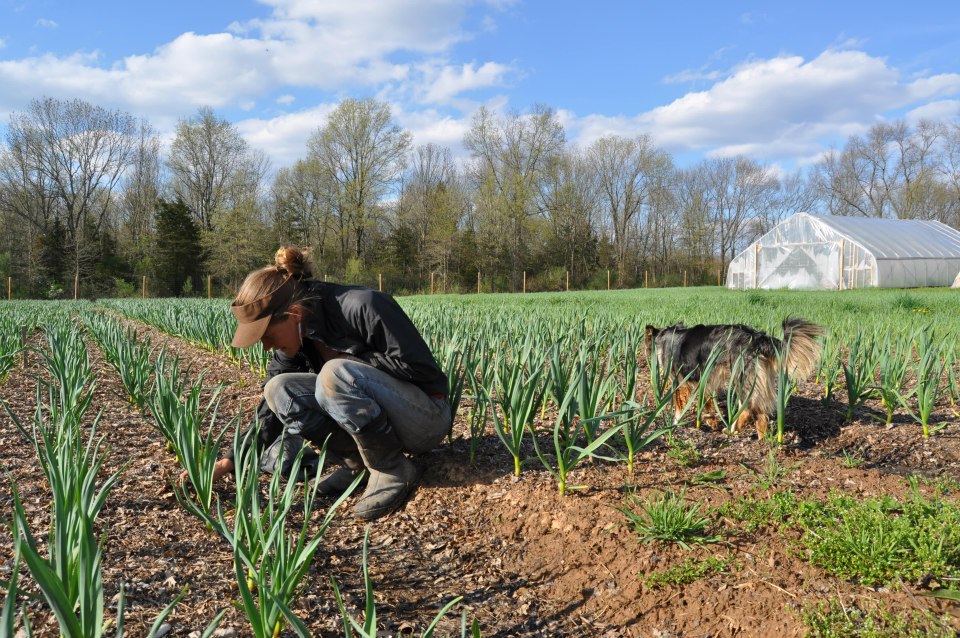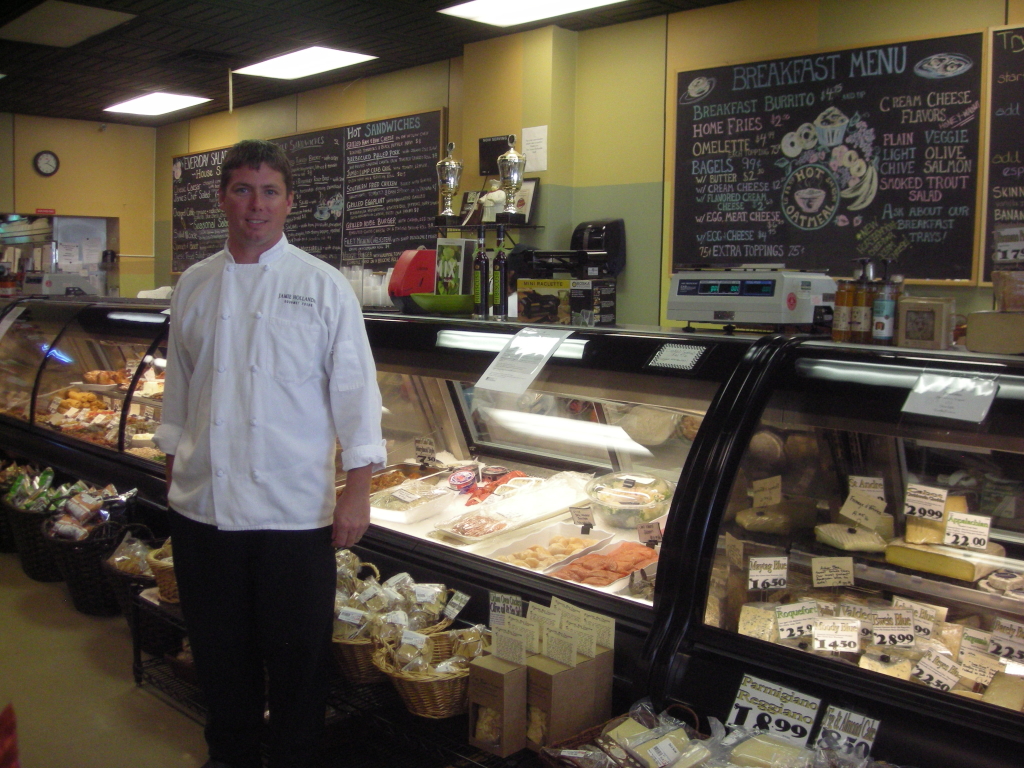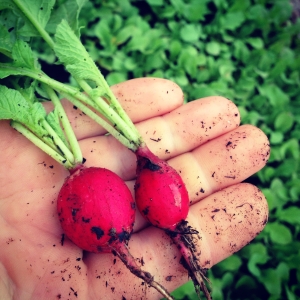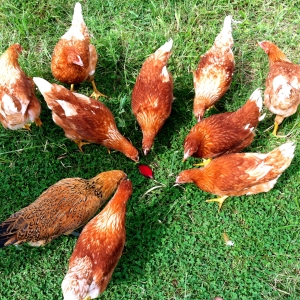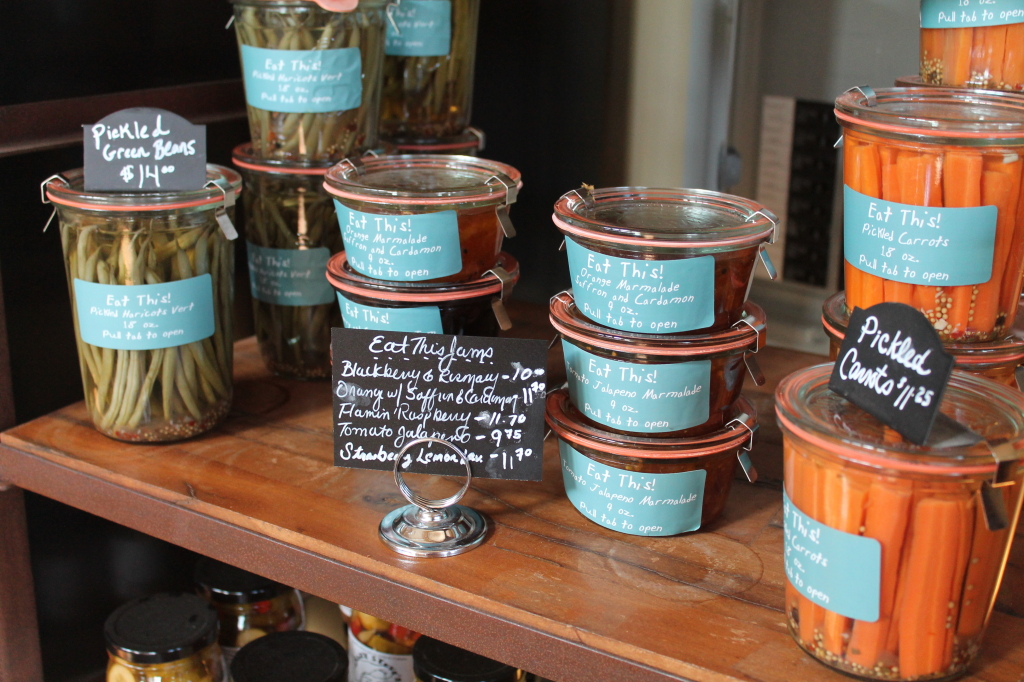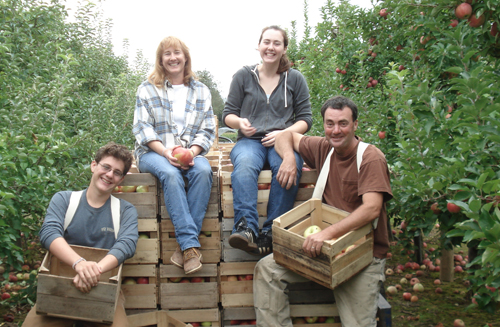Living Local: Find Your Community
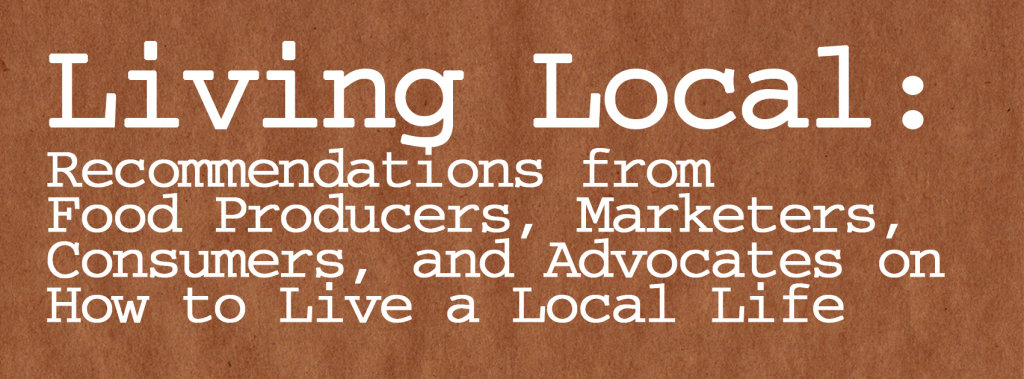
How can you make an impact on your local community?
What impact does community have on the local food system and sustainability?
Chuck Minguez of Door to Door Organics and Jeanna Kane of the Doylestown Food Co-op explore what it means to live locally.
Chuck encourages people to go out and join in the change happening in their area. “Get involved with local organizations that support the local foodshed like Bucks County Foodshed Alliance or your local Buy Fresh, Buy Local chapter. Go to meetings and meet the people directly involved in creating change.”
Jeanna also believes strongly in the power of community, like-minded individuals joining together, to affect change. Her words follow.
“This now brings me to Community. This could be one of the most important items to address as we move through climate change. All of the things we need to do as humans living on a changing planet we will need to do together. We are all great at coming together in a tragedy. Just look at how people came together during the aftermath of Sandy. People offered their homes for sleeping, showering, or just a hot cup of coffee or soup. So let’s take that community spirit and use it before the catastrophe. We can help each other plant gardens, we can have better public efforts on getting more alternative energy into peoples homes – subsidized solar panels perhaps. We can get together and help each other learn how to can or cook a seasonal meal. We can support community efforts on getting local food onto the tables of people who can least afford it.
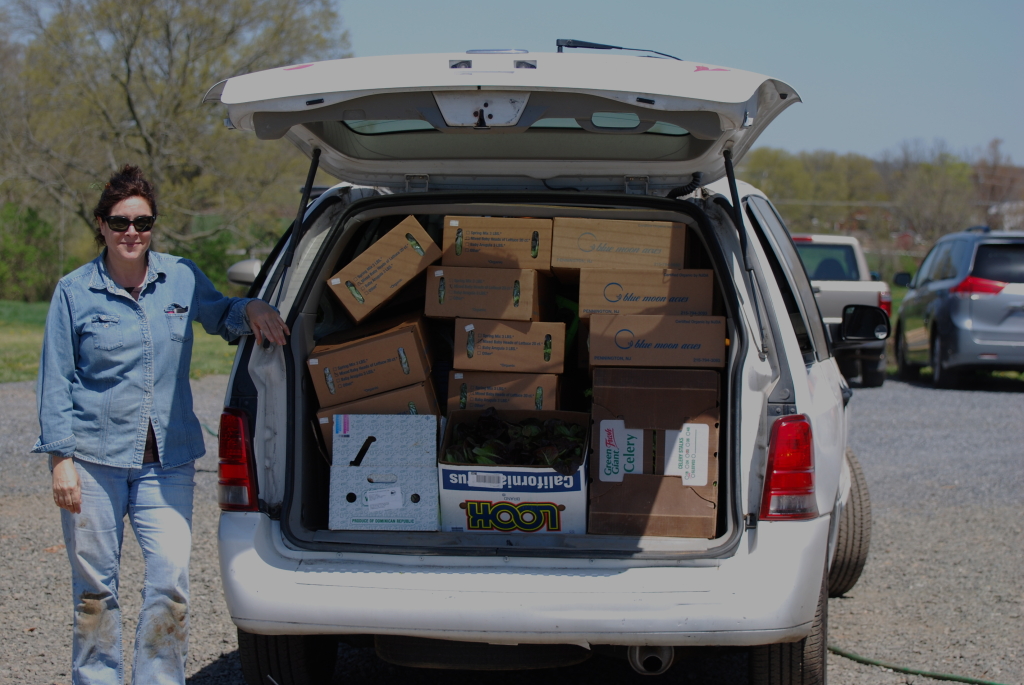
Cathy Snyder of Rolling Harvest picks up a donation of greens and vegetables from Blue Moon Acres in Pennington, NJ
“I do many of these things now through my Ladies Homesteading group that I meet with on a monthly basis in person and almost a daily basis online, as we share tips and tricks for gardening, preserving, holistic health, and other general homesteading ideas.
“I read and read and read lots of books so that I can learn more ways to lower my footprint. But I don’t just read, I also put many of the things I learn into action. I share with others what I have learned through educational efforts.
“I have worked hard to bring about a food co-op in Doylestown that will support the local farmers– and I’m happy to say that we have a location and a targeted opening date of November. [The Doylestown Food Co-op is now open and operating.]
“I support organizations such as the Rolling Harvest Food Rescue that works with local farmers who donate excess harvests to go to local food pantries. They now have about 13 or 14 farmers in their program and are on target to surpass the 48,000 pounds of fresh food that they delivered in 2012.
“Get up each day and see what you can do that day that would lead to a more sustainable, less resource wasting life. I didn’t do all of this overnight.”

